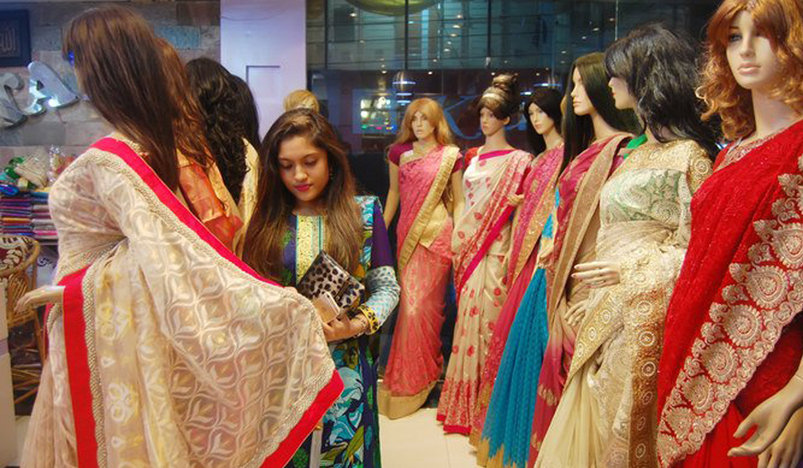
Financial and social insecurity had led the parents to marrying off their daughters, said education officer Ruhul Amin.
When 16-year-old Borsha recently went to her local police station with a desperate plea for help to get out of a forced marriage, her biggest wish was to get back to school.
Her simple request for a return to education was one that has no doubt mirrored the dreams of thousands of other girl brides in southern Bangladesh whose classroom seats have remained empty since the lifting of one of the world’s longest coronavirus disease (COVID-19) shutdowns.
Borsha, whose marriage was canceled when police intervened, is one of a large number of schoolgirls in the region believed to have been silently married off over the past 18 months.
Living at her grandparents’ house in Chuadanga district, with her mother who earns $2.50 a day at a local factory, Borsha realizes that the cost of her education is a big expense for her family, but she told Arab News that early marriage was not the way to end such cycles of poverty.
She said: “It’s very tough for my mother to make ends meet and cover my educational expenses but marrying off little girls is not the solution.
“My teacher at school also taught me the negative impacts of child marriages as it creates many health complications for a girl. I want to complete my school first and want to become a journalist.”
Borsha studies at Jhinuk High School which has agreed to waive her tuition fees until she has completed her secondary education.
The marriage age in Bangladesh is 18 for women and 21 for men, but according to UN Children’s Fund estimates from 2019 — before the COVID-19 outbreak — more than 15.5 percent of Bangladeshi girls had been forced into wedlock below the age of 15.
Following the recent reopening of Bangladeshi schools, authorities have been alarmed by the number of girls not attending classes.
Accurate information about child marriages in Bangladesh during the pandemic remains largely anecdotal, but numbers are believed to have increased as quarantines and lockdowns have aggravated existing economic and social strife in communities such as Borsha’s.
In nearby Khulna district, officials have started counting cases.
District , told Arab News: “We noticed many girls were not attending classes when the schools reopened last month. Our school authorities contacted their guardians and discovered that many of the girls had been married off during the closure of the schools. We recorded more than 3,000 child marriages in this district.”
And the actual number may be far higher.
“Financial and social insecurity had led the parents to marrying off their daughters. Our teachers are maintaining contact with the guardians to convince them to allow the girls to attend classes,” he said.
Abus Shahid, a father from Khulna who six months ago married off his ninth-grader daughter, said he had no choice because his earnings had been squeezed.
“At the same time, schools were closed for an indefinite period, and my daughter had nothing to do except sit idle at home,” he added.
Asma Begum, also from Khulna, said she had agreed to her 15-year-old daughter getting wed in order to save her from unwelcome advances and teasing.
“I had to take the decision. Besides, we received the proposal from a good groom. It depends on her in-laws whether they will allow their daughter-in-law to continue studying,” Begum added.
The number of child marriage cases in Bangladesh revealed by the reopening of schools in the country may be just the tip of the iceberg.
Prior to the COVID-19 pandemic, data showed that an underage girl somewhere in the world was forced into marriage every two seconds, and with virus cases still on the rise, the UN has forecast an additional 13 million child marriages over the next decade as programs to prevent them have been disrupted by lockdowns and the global economic slowdown.
Rasheda Chowdhury, a renowned Bangladeshi educationist and director of the Campaign for Popular Education, told Arab News that the issue was already there before the start of the pandemic and immediate intervention was now necessary.
She said: “We failed to address the issue socially and administratively. To prevent child marriages a coordinated effort should be taken.
“Female members of local government bodies should play a role in returning girls to school and preventing further incidents of child marriages.”
.jpg)
Qatar Secures Place Among the World's Top 10 Wealthiest Nations
.jpg)
Hamad International Airport Witnesses Record Increase in Passenger Traffic

Saudi Arabia: Any visa holder can now perform Umrah

What are Qatar's Labour Laws on Annual Leave?
Leave a comment